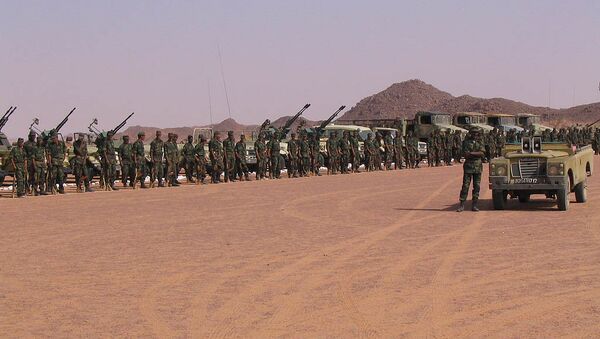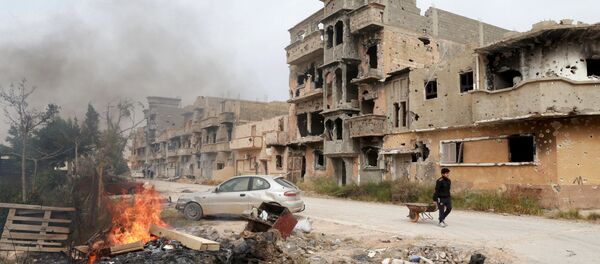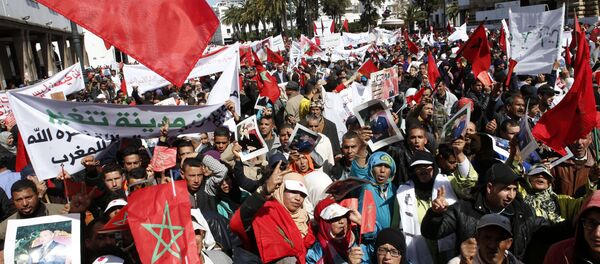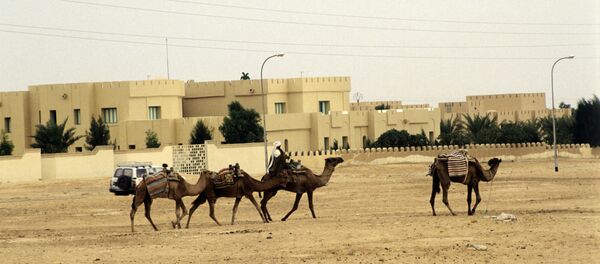On Sunday, the Moroccan head of state indicated that his country would be returning to the African Union. Morocco left the organization in 1984 after it provided membership to Western Sahara, which Rabat considers to be Moroccan territory.
At the same time, in a detailed analysis on the situation in the region for the Russian news and analysis portal Vzglyad, Algiers-based journalist Said Gafurov warned that the partially-recognized Sahrawi Arab Democratic Republic may soon resume its war of independence against Morocco.
"The Polisario Front," Gafurov explained, "is recognized by the United Nations as the sole representative of the Western Saharan people, many of whom now live in exile as refugees, while the areas of the Rio de Oro and Saguia el-Hamra remain occupied by Morocco."
The conflict stretches back to 1975, and the UN presently considers Western Sahara to be the last colony in Africa. The Polisario Front stopped its armed struggle against Rabat in 1991 when, under the auspices of the UN, a cease-fire agreement was reached and a referendum process agreed to. However, twenty-five years later, negotiations on the referendum remain stalled over disagreements on voting rights.
At present, the Sahrawi Arab Democratic Republic (SADR) has been recognized by 84 UN member countries, mostly in Africa and Latin America, with 37 of them having since frozen or withdrawn recognition.
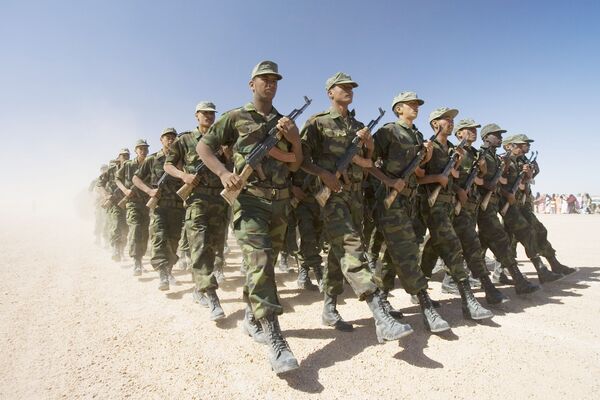
Mohamed Abdelaziz, who led the partially recognized state from 1976 until his death in May, was the leader of the 'political faction', according to Gafurov, "i.e. the representative of moderate forces – supporters of a political solution to the Saharan conflict."
"To make matters worse," the journalist noted, "officials in France have threatened that Algeria may become the next country to face an 'Arab Spring'. In this situation, Algiers is opposed to a military option in the Sahara issue, but its influence, while significant, cannot be decisive, given that in Algeria itself there are different perspectives on how to view the problem of the SADR."
The partially recognized state has three main factions – the 'political faction', the 'youth faction', and the 'military faction'. The key issue separating them, according to Gafurov, is their position on the resumption of war. Moreover, "a 'peace faction' does not formally exist within the Polisario Front."
"Out of the hundreds of delegates to the previous congress speaking to Russian observers, only the head of the Saharawi Women's Federation opposed the resumption of war, and even then, with great reservations." Subsequently, Gafurov warned, "the question effectively boils down to the terms and conditions of the conflict's resumption."
"The 'youth faction' insists on the immediate resumption of war. Its more moderate part is in agreement to wait for the results of the negotiations with Morocco on the referendum, but for no more than one-and-a-half to two years, and with the unconditional beginning of combat operations in the event of the negotiations' failure."
"The 'political faction' is closely linked to the management of the refugee camps, and is engaged in the distribution of international aid, and its position is strongly influenced by the opinion of the international community. In principle, it is not opposed to the idea of a war of liberation in the event of the failure of talks, but the resumption of hostilities is considered the worst possible option. At the same time, the faction insists on the 'de-ideologization' of SADR; The Polisario Front, in its view, must stop being a left-oriented movement in order to facilitate the receipt of aid from the EU, and to receive political support from the United States," which it presently lacks.
"Gradually, elections have seen the military begin to push back the politicians, but this process is slow…The faction is aware of the unpredictability of the results of any possible war, but is looking for a change, which the political faction is advocating against."
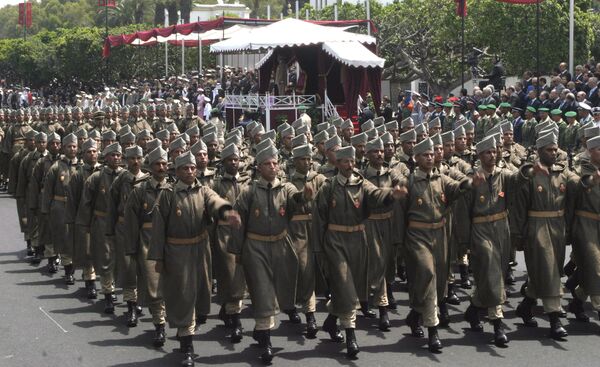
Ultimately, on July 12, the Polisario Front's snap congress voted to elect 67-year-old Brahim Ghali, a long-time Sahrawi leader who has participated in the region's national liberation movement since the 1960s, and who served as Polisario's first leader between 1973-1975. He would go on to serve as Minister of Defense during the war with Morocco, and as the SADR's representative to Spain and Ambassador to Algeria.
"Thus, it can be said that the congress has issued a victory for the 'war faction'," Gafurov noted.
The keynote of the newly elected president's speech, the journalist summarized, "was that Sahrawis naturally seek a peaceful resolution to the problem [of their occupation by Morocco], but are also fully prepared for the resumption of war."
"At the same time," the journalist warned, "the population of the areas under Morocco's occupation too has been expressing its discontent more and more loudly. If earlier this was manifested mainly in the form of civil disobedience, hunger strikes and protests, now, the documents of the Polisario Front congress speak of a full-fledged Intifada, while those living in the refugee camps are beginning to demand the resumption of the war and the liberation of their territory."
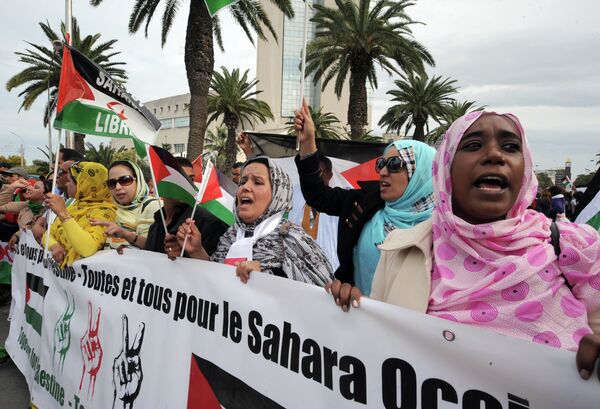
Effectively, Gafurov noted, the portion of the Sahrawi population living under Moroccan occupation believes that "they have little to lose, and much to gain" from ending Rabat's control over their territory. "Western Sahara has a relatively small population, and enormous natural resources. Earlier, it was believed that these consisted primarily of valuable phosphate deposits and reserves of iron ore; now, the region's coastal waters, which include a highly valuable fishing area, are considered even more important."
Ultimately, the journalist emphasized that the threat of a resumption of war between Rabat and the SADR also increases the risk of the region being overrun with Islamist terrorists. "And if the problem is being resolved today primarily by heavy-handed methods (Islamist preachers from abroad are simply not allowed into the region) in the case of resumption of hostilities, events may take an unexpected turn," given the inevitable reduction in Rabat's security capabilities.
"For this reason, the UN understands that a referendum in Western Sahara is long overdue. The Polisario Front proposes three options for the referendum: independence, autonomy within Morocco and full accession to Morocco. But what is of principle importance is that the people of Western Sahara are able to decide their fate for themselves. Any decision imposed from above threatens the outbreak of violence, an echo of the kind which also threatens the other side of the Mediterranean," Gafurov concluded.

